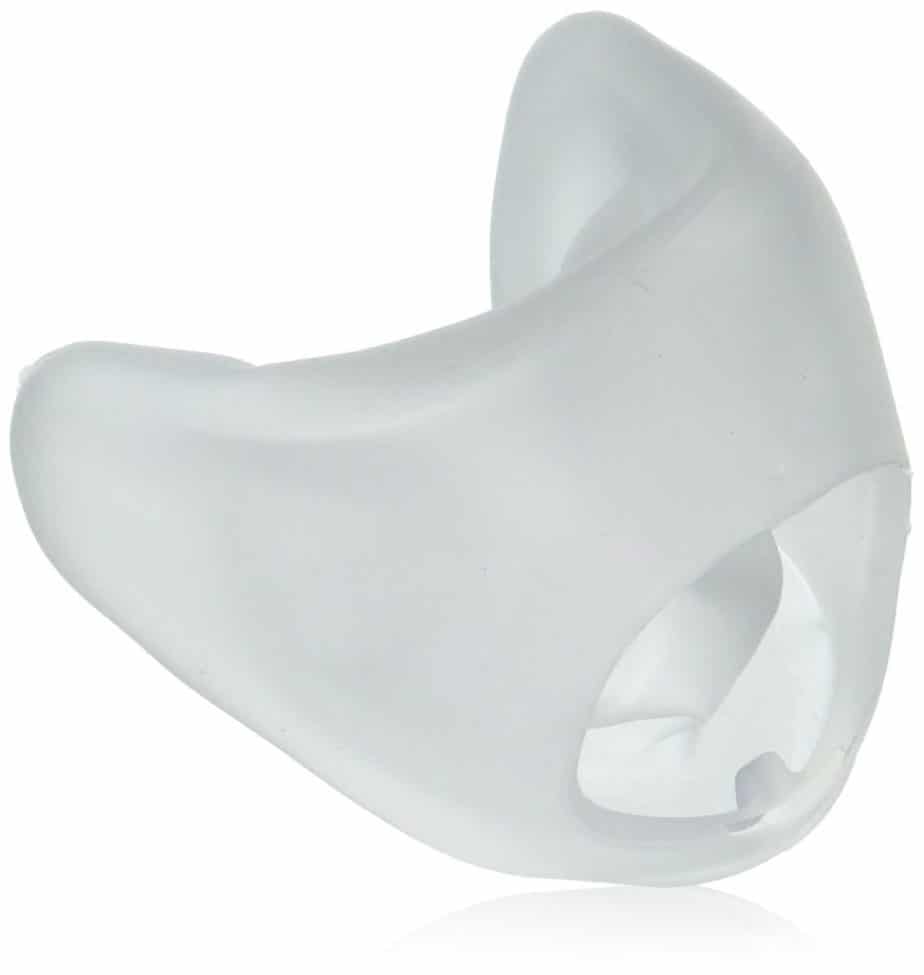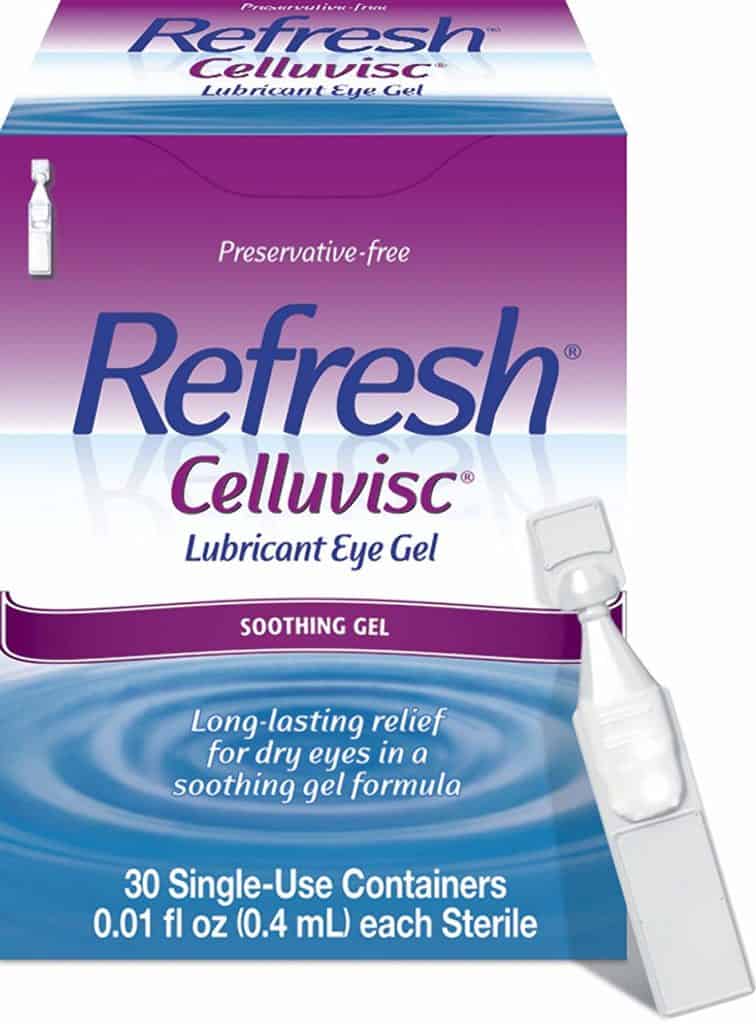What Are The Most Common Side Effects Of A CPAP Machine And How To Avoid Them
CPAP machines can be a highly useful and needed tool to help men and women combat sleep apnea. However, CPAPs do not always bring magical and instantaneous relief.
There are times when just using the CPAP machine itself can cause other issues. These side effects can be bothersome to some users so much that they don’t want to use the CPAP machine at all.
Our goal in this article is to identify the side effects a CPAP user is most likely to have and suggest ways to mitigate those issues.
What Are The Most Common Side Effects Of A CPAP Machine?
The most common side effects when using a CPAP machine include air leaks, skin irritations from the mask, aerophagia, noisy environment, anxiety from wearing the mask, insomnia, hard time exhaling, and eye irritation. Let’s look at each one in turn and discuss how you can mitigate these side effects.
Air Leaks
The most common issue with using a CPAP machine is an air leak. If your mask does not have the ideal fit, air may leak out around the edges. This occurs most often when you change positions or turn over during sleep.
If you have a bigger mask covering your nose and mouth, you are more likely to experience a leak. A leak can be noisy, decrease your pressure or compromise your treatment.
You can decrease an air leak by using either nasal pillows or a nasal mask. Mask liners may also help to provide a better seal by providing a softer, more pliable connection from the mask to your skin.
If you are unable to achieve a perfect fit from your mask, changing your pressure settings can also help. If you have excess air pressure, the extra air can leak out of your mouth or around the edges of your mask. Prior to changing your settings, you should talk to your doctor.
Facial Irritation/Lack Of Cushion
Another common issue is irritation on the bridge of your nose resulting from your headgear and mask. The interface between your face and tubing is your mask. When you mask is fitted correctly, there is an important seal that needs to be made.
The seal enables pressurized air to enter your airway to ensure it prevents apnea by remaining open. The most important step you can take for both correct use and comfort is to make certain your mask has an ideal fit.
For this reason, the recommendation is to have an experienced technician with proper credentials set up your CPAP. You technician will help you find the right mask for your face to ensure the best possible fit.
Even if your mask fits perfectly, you should keep in mind you will be wearing your mask for at least eight hours every night. The skin surrounding your eyes and on your nose is sensitive and thin. This may result in irritation.
There are ways to help prevent skin irritation including:
- Make certain your CPAP mask has the best fit possible.
- Use a soft material such as moleskin, a bandaid or a nose pad to enable your irritation to heal. This will prevent your mask from coming into contact with sensitive areas.
- Check your cushion and straps to make certain they are clean and the condition is good.
- Use a lubricant such as lanolin where the mask is coming into contact with your skin to eliminate irritation in the future.
- Finally, utilizing a nasal pillow (like the one above) or a mask liner that is breathable and soft can really help cut down on the irritations on your skin. Make sure you buy the correct size liner and that it is designed to be used with your specific mask.
Dry Mouth
If you are experiencing dryness of your mouth or nose, the reason may be leakage. This can cause nosebleeds or damage to your teeth and gums. Air can escape if your mouth is open while you are sleeping.
The result is often a parched tongue or mouth. You can purchase a nasal saline spray over-the-counter for a dry nose. Heated tubing and a heated humidifier can help prevent you from drying out.
If your mouth falls open, you can use a bigger face mask to cover your mouth and nose or try using a chinstrap. Chinstraps fit around the back of your head and under your chin to keep your mouth shut during the night.
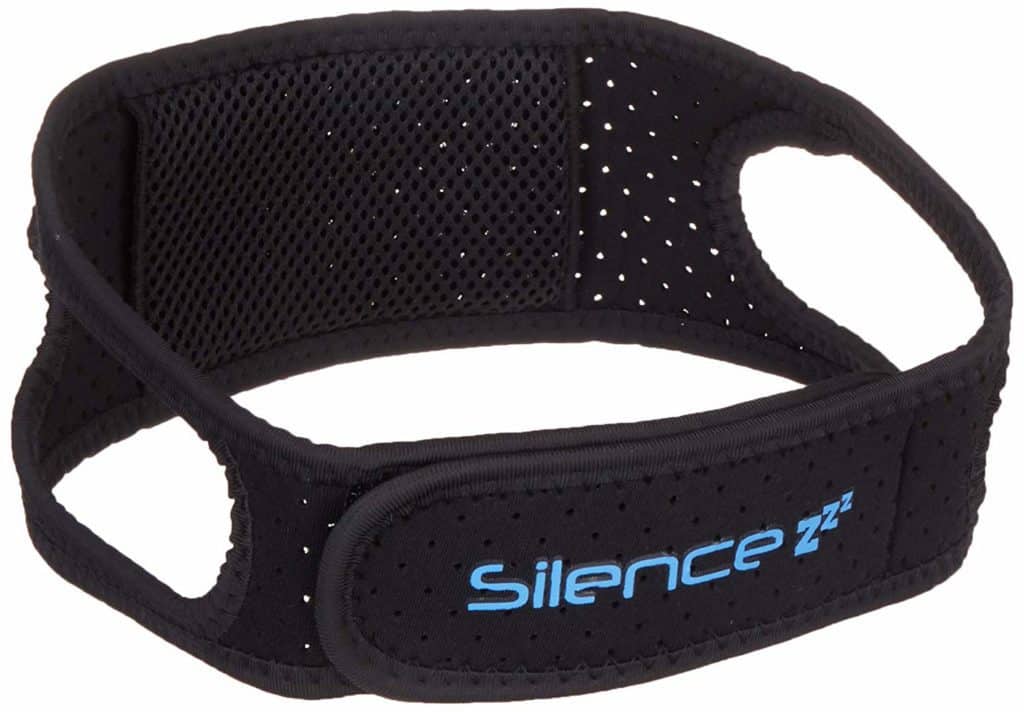
This may also be a reason to utilize headgear with your CPAP. Headgear will help to keep your mouth closed, keep the mask properly sealed to your face, and even out the pressure felt on your head from the straps.
Aerophagia
Aerophagia results in abdominal discomfort due to swallowing too much air. The word was derived from Greek. The definition of aerophage is to literally “eat” air.
Your esophagus begins at the base of your throat and goes all the way to the top of your stomach. Your UES or Upper Esophageal Sphincter is a band of muscle located at the very top of your esophagus in the back of your throat.
Your UES will relax to enable food to enter your esophagus when you swallow. Your food is moved to your stomach through muscle contractions in you LES or Lower Esophageal Sphincter. Once your LES relaxes, the food you have consumed reaches your stomach.
Your LES will stay open for five to eight minutes prior to closing to enable food to go down your esophagus. Once closed, you food is unable to go back up your esophagus. You generally swallow as much as 30 ml of air with your food.
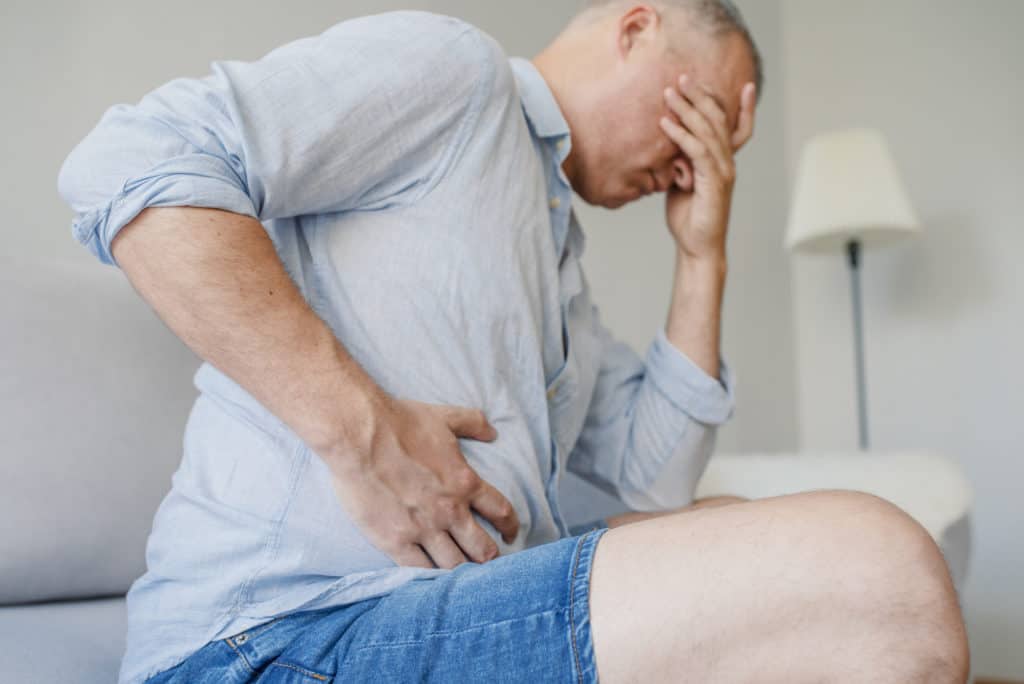
As you ingest air, the pressure will increase and your stomach swells. When the pressure in your stomach reaches a specific point, you LES will relax. The air escapes from your stomach, travels up your esophagus and is released as a belch. This is normal and manageable when awake.
However, you can swallow air without drinking or eating. You can even do this at night when you are sleeping.
This can impact CPAP users. It remains unknown how much air is forced into your stomach from a CPAP. Some CPAP users with aerophagia actually have supragastric aerophagia.
This is when the air entering the esophagus never reaches the stomach. There is a possibility aerophagia linked to CPAP machines results from GERD or gastroesophageal reflux disease.
The disorder results in the relaxation of your LES. Your gastric fluids can then travel from your stomach into your esophagus. There are surgical options and drugs available to decrease the pressure resulting in aerophagia.
You may be able to relieve the aerophagia related to your CPAP machine in the following ways.
- Try not to eat too close to bedtime or elevate your head to decrease pressure.
- Use your lowest CPAP setting to decrease pressure in your airway. An APAP or auto-titrating PAP may help.
- Try to avoid substances including nicotine and caffeine. Both will relax your LES.
- A bi-level PAP may decrease the amount of air reaching your stomach.
Noisy CPAP Machines
The noise from your CPAP machine may be disrupting your sleep or that of your partner. If you are using one of the older machines, consider purchasing a newer model. Modern CPAP machines are much quieter than the older models.
You may just need a little time to become accustomed to the sound. Your partner will most likely adapt to your CPAP much better than the sound of the snoring associated with obstructive sleep apnea.
Anxiety From Wearing The Mask
One of the most common issues for anyone first using a CPAP machine is a sense of claustrophobia or suffocation. If you are experiencing anxiety or claustrophobia about wearing your mask at night, you should know this is very common.
According to studies, hormones are released if you have sleep apnea. This can result in panic or anxiety. If you are suffering from general anxiety, this may increase due to medical procedures and equipment.
Your chances of having a panic attack while attempting to fall asleep may increase. If you are suffering from panic attacks, anxiety or claustrophobia, you should talk to your doctor or the technician setting up your CPAP equipment.
There are steps you can take to help decrease your anxiety. Try one of the suggestions defined below.
- Choose a mask with the most comfortable feel. Some individuals are most comfortable with the least invasive mask. You will not feel nearly as restricted because this type of mask will not interfere with your vision as much.
- If you breathe through your mouth, consider a full-face mask as opposed to a mask and chinstrap. Being able to open your mouth may help. If possible, have your mask fitted by a technician to make certain your have the best mask for comfort.
- Wear your mask for a couple of hours while reading or watching television to gradually become more comfortable with your equipment.
- You should understand how your mask works. There are exhalation ports to enable you to breathe in and out. The sophistication of your mask will not allow you to suffocate.
- Prior to going to bed, do some breathing exercises to help you relax before you try to fall asleep. Meditating for as little as 5 minutes could help you enter a more peaceful state of mind prior to getting in bed.
- Speak with your doctor or CPAP provider about CPAP acclimatization or desensitization. You can work as a team to increase your usage of the equipment during your first few weeks.
Hard Time Exhaling
You may be having a hard time exhaling air due to the pressure of the CPAP. You have several options available including:
- The newest CPAP machines have a feature enabling you to increase pressure slowly to help you fall asleep easier. Your machine will set the pressure after you have fallen asleep.
- Some CPAP machines use expiratory pressure. Your breathing will be more natural and smoother because the pressure is decreased slightly every time you breathe out.
- Consider trying a bi-level PAP machine. The pressure when you are breathing out is much lower. You will have to pay more for this type of device as opposed to an auto-set or standard CPAP. Your insurance may cover your purchase.
- Consider an auto-set PAP because the pressure will not be increased unless it is necessary. This type of device offers a minimum and maximum adjustment determined by the way you breathe each night.
Insomnia
If you are experiencing insomnia, it may be the result of your CPAP. Insomnia is also one of the most common symptoms of individuals with sleep apnea. When you have sleep apnea, you will wake up over and over throughout the night.
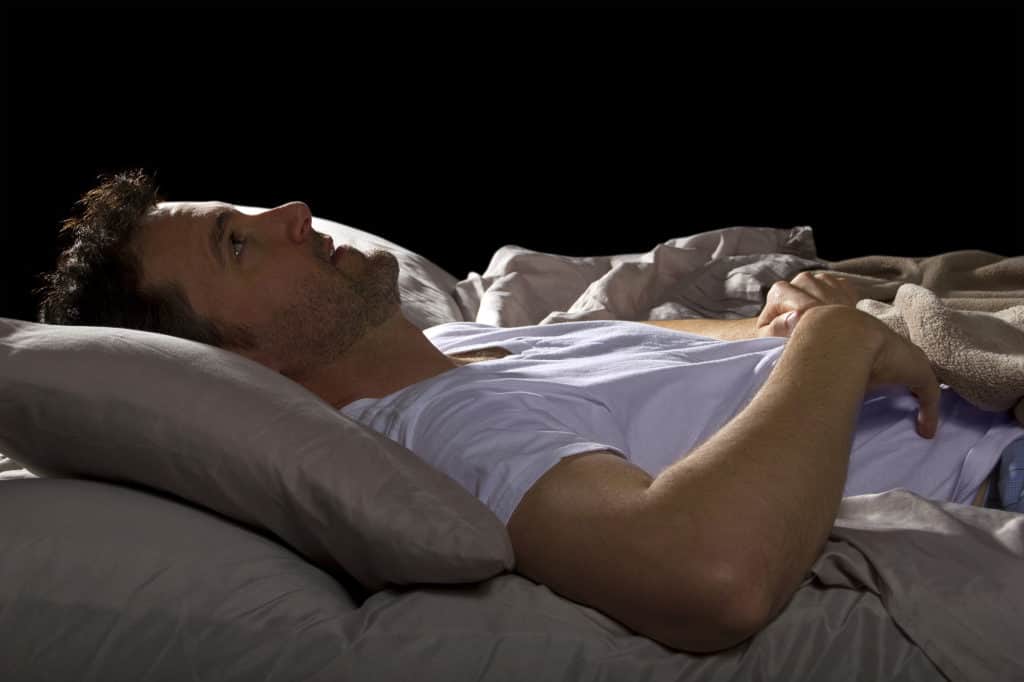
The disruption in your sleep may be responsible for your insomnia. There are several things you should keep in mind. Using your CPAP every night will regulate your sleep cycles. This may take care of your insomnia.
If your insomnia persists, you should pay attention to your sleep hygiene. Look at what you do when you are getting ready to go to bed. Ask yourself if you wake up at the same time every night.
You may need a sleep aid to help you through the first couple of weeks using your CPAP machine. Your best option is to speak with your doctor.
Eye Irritation
If your CPAP mask is not fitted correctly, the air leak may result in an irritation of your eyes. No matter which type of mask you use, there will be some air leakage. A correct fit will minimize how much air is leaking and causing eye irritation.
If your mask is blowing air into your eyes throughout the night, your eyes may be irritated and dry during the day. According to ophthalmologists, there are ways to prevent this from interfering with your therapy.
The recommendation is using a thick ointment or gel as opposed to less viscous or thinner artificial drops. You should use the ointment or gel right before you go to bed.
To ensure you are treating your eye irritation and sleep apnea correctly, you should consult with your doctor.
When To Adjust Your CPAP Settings
You may need to make an adjustment to your CPAP pressure. This can become necessary due to changes in your risk factors including:
- If you are suffering from environmental allergies, your pressure requirements can be reduced by optimizing your therapy with nasal sprays or medications. You may be able to improve your airflow through your nasal passage.
- Your requirements for CPAP therapy may change due to surgical procedures including tongue or soft palate surgery, nasal septoplasty or tonsillectomy.
- One of the biggest risks for sleep apnea is excessive changes in weight. If dieting and exercising results in a loss of 10 percent of your total weight, you may experience issues with breathing out, an air leak or swallowing air.
- You can help by decreasing your CPAP machine pressure. You can experience the same issues if you gain a large amount of weight.
- Your sleep apnea can increase in severity if you smoke or consume alcohol shortly before you go to bed. Medications including benzodiazepines and muscle relaxants can make your symptoms worse. Discontinuing any of these substances may help.
In Conclusion
It’s inevitable that every CPAP user will run into a few side effects when using the machine, especially when they are new to it. With patience and some tinkering, you should be able to adjust your situation to allow you to be able to fully enjoy the many benefits of using a CPAP machine.

